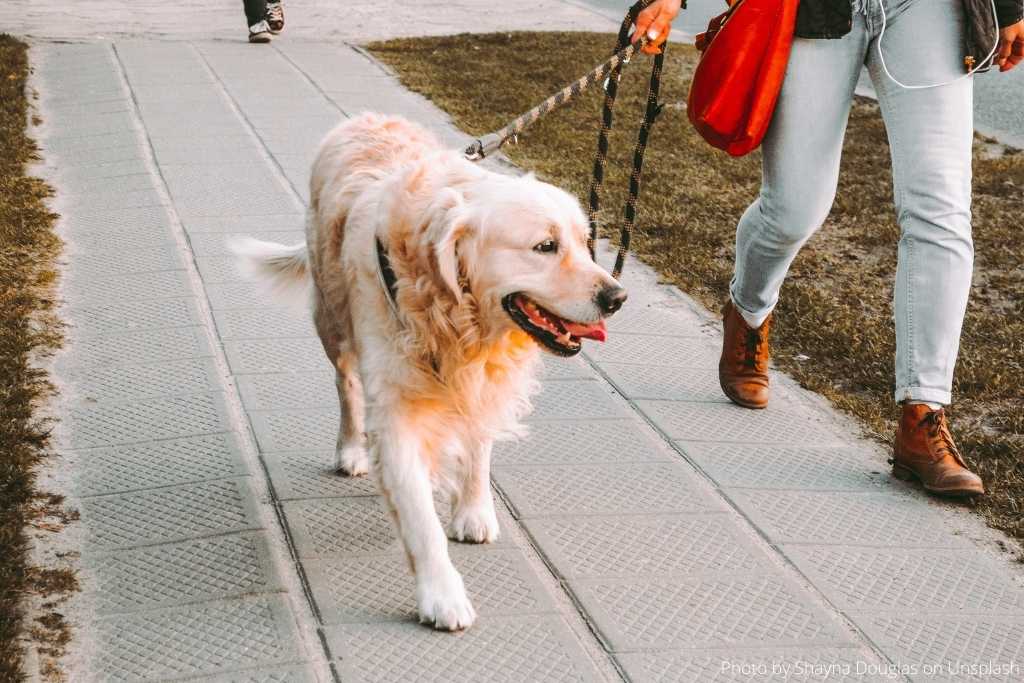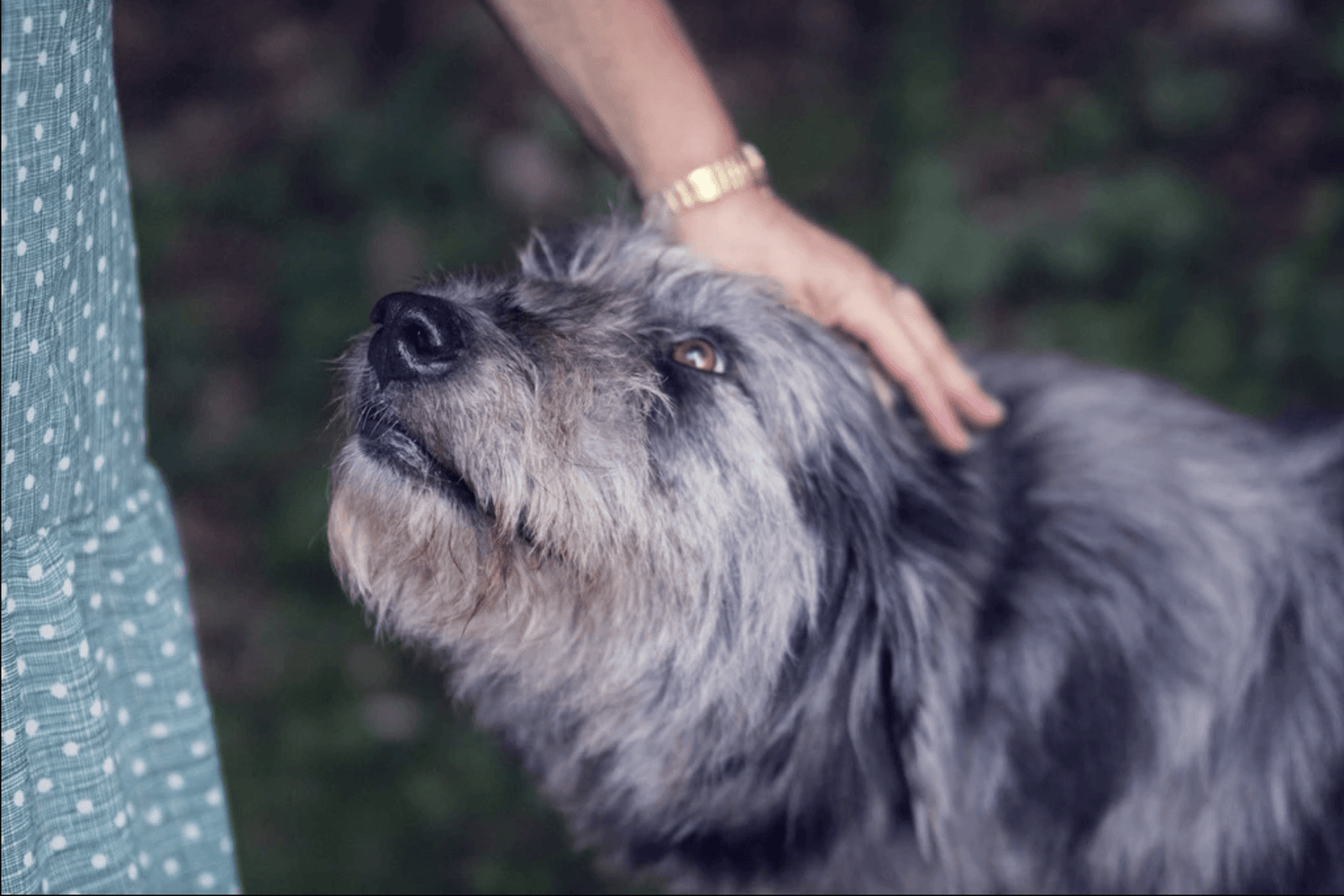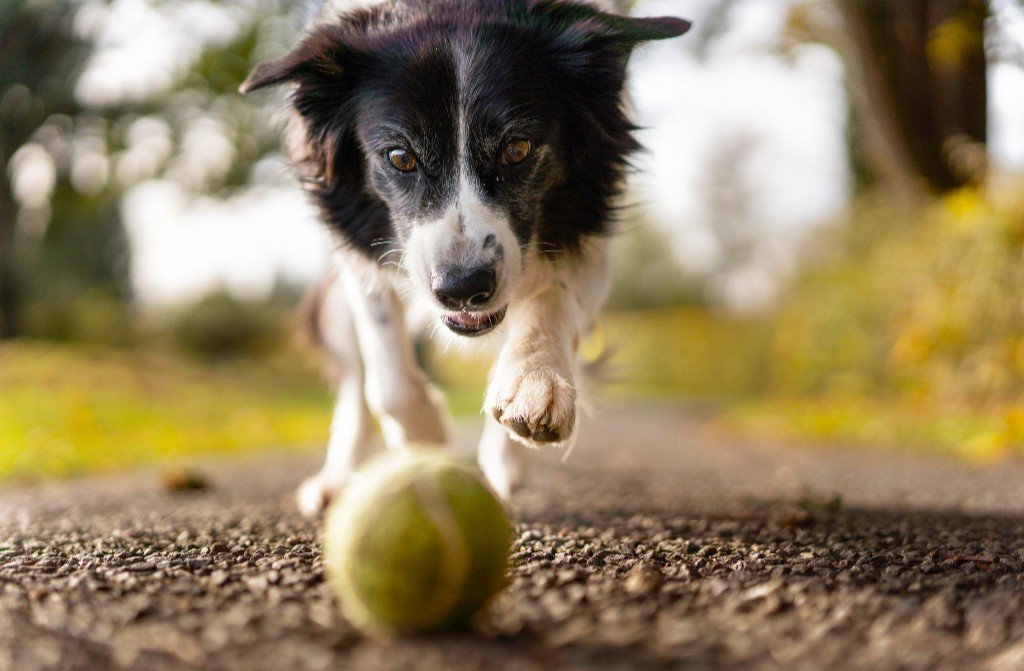MORE TO SHIP FREE 🚚
NICE. SHIPPING IS FREE 🎉
MORE TO REDEEM GIFT 🎁
YAY. REDEEM A FREE GIFT 🥳
YOUR CART IS EMPTY. SHOP NOW.
Walking your pup regularly is just as vital as your need to take a shower every day. Dog walks aren’t just about potty breaks for your pup - it actually provides essential benefits! In this article, we share some tips for walking your dog!

Regular walks can give your dog the mental stimulation and physical exercise they need. Ultimately, regular exercise and walks will help your dog stay happy and healthy.
Of course, different dogs have different energy levels and therefore, different needs. Some dogs like Border Collies or Aussie Shepherds have sky high energy levels and need plenty of exercise and physical stimulation compared to dogs with low energy levels like greyhounds or bulldogs. A dog’s age is an important factor in determining how often and how long your dog should be walking daily too.
Plus, walking your dog regularly can actually solve common behavioural issues like chewing on furniture or excessive barking. The mental stimulation and excitement of going out on a walk can help your pup stave off boredom.

Regardless of what kind of dog you have, they’ll definitely appreciate the opportunity to get out of the house once in a while. As a rule of thumb, you should take your dog out on a walk at least once a day. At the very least, your pup needs at least 5 walks a week of at least 30 minutes.
But how do you make the dog walking experience fun and safe for you and your pup? How do you pick the right type of dog harness, leash and dog collar? Let’s find out how to walk a dog!
While you can forgo a leash in a dog run park or other stipulated areas, in most cases your dog will need to be on a leash to go out on walks.
The most important gear for going out on walks is a sturdy leash and either a dog collar or harness system to secure the leash to your dog. There are different lengths, styles and types of dog leashes available. You can find out more about picking the right leash here.
In general, when picking a leash, make sure to consider your dog’s behaviour on walks as well as their size.
Some dog leashes can be too heavy for smaller dogs, whereas thin pet leashes can snap under the weight of larger dogs. You’ll also need to make sure the leash is long enough to allow your pup enough room to explore.

Be sure to check out our helpful videos that teach you how to measure your dog for a harness or collar.
Don’t forget to keep your pup hydrated on a long walk with a portable water bowl like Ruffwear’s Cinch Top Collapsible Food & Water Dog Bowl. You can also make your walk easy and convenient using Clean Conscience’s Compostable Doggy Poop Bags - this way, you won’t have to worry when your dog takes a potty break during their walk!
Try your best to walk your dog around the same time every day, such as in the morning before you head to work or in the evenings after work. Daily routines go a long way in ensuring your dog is not in a constant state of excitement - wondering when you’re bringing them out for a walk.
Plus, keeping a consistent schedule also helps you remember to walk your pup in the first place. It makes it a lot easier to get into the groove of regularly walking your pup.

For quick walks, you can make use of easy to use collars like Red Dingo’s Martingale Choke Prevention Dog Collar. All you’ll need to do is hook your chosen leash on the collar and you’re ready to leave!
You can also schedule their daily meal times after walks so they’re appropriately rewarded after their daily workout; the same way you’d reward yourself after a good gym sesh!
Of course, the most important part of the walk is dog sniffing and exploration!
When you’re walking your pup, you might feel tempted to hurry your pup up when they’re sniffing around. However, a dog’s sense of smell is so fine-tuned that it allows them to experience the world in a completely fresh and new way. They need plenty of time to absorb the smells around them!
Of course, training a dog to pay attention to you on cue is still a good idea - this allows you to give them plenty of room for exploration while ensuring they’re still ready to move on when you need them to!

If your pup has a bad habit of pulling against their leash when exploring, you might want to use a comfortable no-pull dog harness like Ruffwear’s Front Range No-Pull Everyday Harness.
That said, while exploration is key, it’s also important for you to plan a route ahead of time.
Planning ahead gives you more control over the walk. For instance, it’s important to avoid hot surfaces especially concrete that’s been in the sun all day as these surfaces can hurt your pup. A good thing to keep in mind - if you can’t tread the ground bare feet on a hot day, chances are, your dog will feel uncomfortable too. If you’re worried about your pup’s paws, Ruffwear’s Grip Trex All-Terrain Dog Boots are perfect tools to keep their paws protected. You can also add an extra layer of protection with WashBar Natural Paw Balm for Dogs & Cats (With Kanuka Oil).
It’s also a good idea to introduce some variation to your pup’s route once in a while so they don’t get too used to the same walk everyday!

Learning to walk your dog the right way will require plenty of time and commitment and there will be hiccups along the way. But a good, productive walk can be therapeutic for both you and your pup and it just might be the best part of both your days!

What should you do if your dog gets injured? What can you do if your dog is bleeding...



